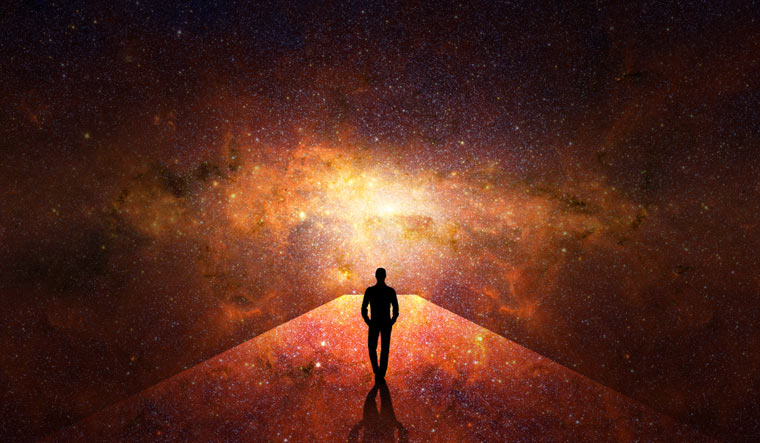People who claim to have experienced personal encounters with 'God' report positive changes in their psychological health lasting decades, scientists say.
Over the millennia, people have reported having deeply moving religious experiences either spontaneously or while under the influence of psychedelic substances such as psilocybin-containing mushrooms or the Amazonian brew ayahuasca.
A portion of those experiences have been encounters with what the person regards as "God" or "ultimate reality."
In a survey of thousands of people who reported having experienced personal encounters with God, researchers from Johns Hopkins University in the US report that more than two-thirds of self-identified atheists shed that label after their encounter, regardless of whether it was spontaneous or while taking a psychedelic.
Moreover, a majority of respondents attributed lasting positive changes in their psychological health—life satisfaction, purpose and meaning—even decades after their initial experience, researchers said.
The findings, published in the journal PLOS ONE, add to evidence that such deeply meaningful experiences may have healing properties, the researchers said.
The study is the first to systematically and rigorously compare reports of spontaneous God encounter experiences with those occasioned, or catalysed, by psychedelic substances.
"Experiences that people describe as encounters with God or a representative of God have been reported for thousands of years, and they likely form the basis of many of the world's religions," said Roland Griffiths, a professor at the Johns Hopkins University.
"And although modern Western medicine doesn't typically consider 'spiritual' or 'religious' experiences as one of the tools in the arsenal against sickness, our findings suggest that these encounters often lead to improvements in mental health," Griffiths said in a statement.
For the study, the scientists used data from 4,285 people worldwide who responded to online advertisements to complete one of two 50-minute online surveys about God encounter experiences.
The surveys asked participants to recall their single most memorable encounter experience with the "God of their understanding," a "higher power," "ultimate reality" or "an aspect or representative of God, such as an angel."
They also asked how respondents felt about their experience and whether and how it changed their lives.
About 69 per cent of the participants were men, and 88 per cent were white. Of those who reported using a psychedelic, 1,184 took psilocybin ("magic mushrooms"), 1,251 said they took LSD, 435 said they took ayahuasca, and 606 said they took DMT (N,N-dimethyltryptamine), a naturally occurring substance found in certain plants and animals.
The people who said they had a God encounter experience when on a psychedelic reported that these experiences happened at age 25 on average, whereas those whose experience was spontaneous reported having it at an average age of 35.
About 75 per cent of respondents in both the non-drug and psychedelics groups rated their "God encounter" experience as among the most meaningful and spiritually significant in their lifetime, and both groups attributed to it positive changes in life satisfaction, purpose and meaning.
Independent of psychedelics use, more than two-thirds of those who said they were atheists before the experience no longer identified as such afterward.
Although both groups reported a decreased fear of death, 70 per cent of participants in the psychedelics group reported this change, compared with 57 per cent among non-drug respondents.
In both groups, about 15 per cent of the respondents said their experience was the most psychologically challenging of their lives.
"Continuing to explore these experiences may provide new insights into religious and spiritual beliefs that have been integral to shaping human culture since time immemorial," said Griffiths.
Griffiths and the research team caution that the study relied on self-reported responses to a questionnaire, a method that carries substantial possibilities for biased or inaccurate responses among participants.
They don't advocate that people use hallucinogenic substances on their own because they carry not only legal risks, but also behavioral risks associated with impaired judgment under the influence and the possibility of negative psychological consequences, particularly in vulnerable people or when the experience is not safeguarded by qualified guides.









